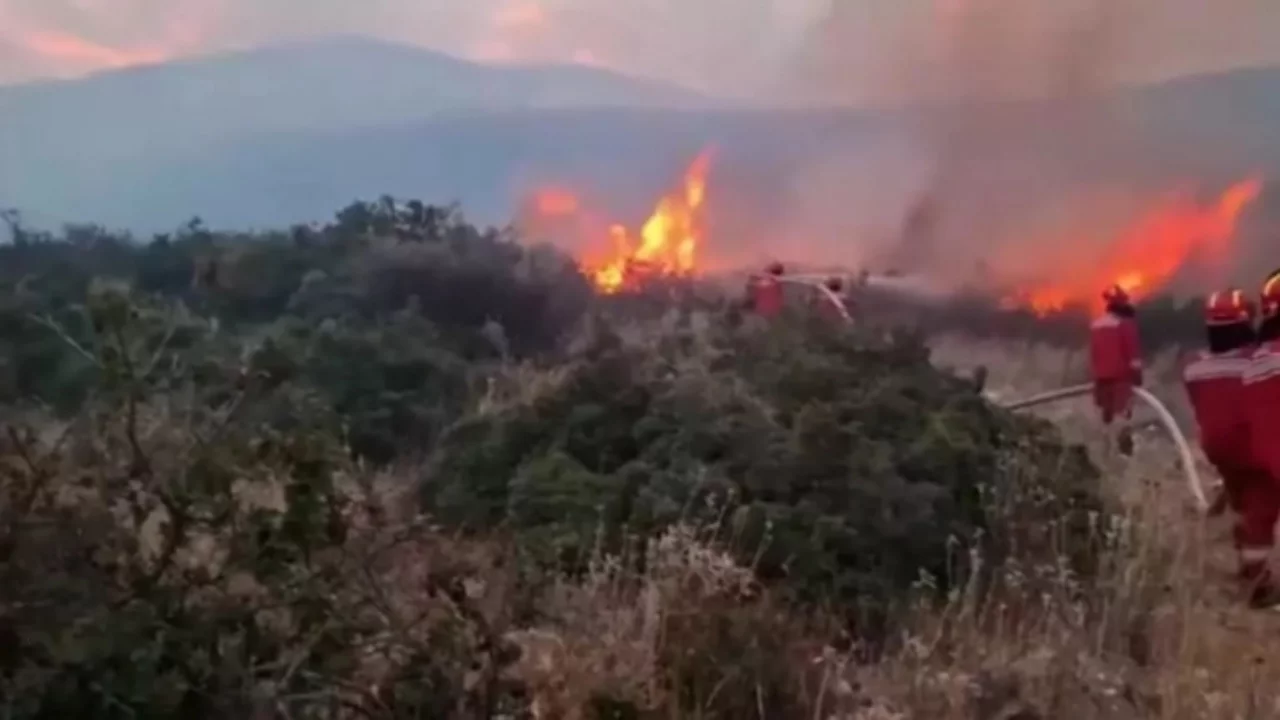Fires in the Balkans are getting out of control, international assistance has been mobilized

Several countries on the Balkan Peninsula are currently facing serious environmental and infrastructural problems as a result of large-scale and intense wildfires. Caused by drought, extreme heat, wind, and human negligence, these fires have yet to be brought fully under control.
In recent days during the weekend, the most severe situation was observed in Albania. Forests and steppes were burning simultaneously in several regions of the country. Thousands of hectares of land were engulfed in flames. Nearly twenty settlements saw serious damage to houses, power lines, and roads. In some districts, residents were evacuated as a precautionary measure.
The Albanian government officially appealed to the European Civil Protection Mechanism through Tirana. Within a short time, highly trained firefighting units from Italy, Croatia, and Hungary arrived in the country. They began battling the fires both by air and on the ground using special equipment. Currently, hundreds of firefighters are actively working on the front lines.
A similar serious situation has arisen in Bulgaria. A total of 230 separate fire outbreaks have been recorded in various parts of the country. The government requested help from the European Union to deal with the emergency. In some regions and provinces of Bulgaria, the fires have approached residential areas and agricultural lands, prompting local authorities to develop additional evacuation plans.
In North Macedonia and Croatia, several large fires that broke out last week have been partially brought under control. However, weather conditions — especially temperatures exceeding 42 degrees, strong winds, and reduced humidity — indicate that the fires may intensify again.
Environmental experts emphasize that such widespread fires in the Balkans pose a serious threat not only to nature but also to human health and social stability. Following these recurring natural disasters, national politicians and international partners are increasingly engaged in serious discussions about climate change and mitigation measures.
As an urgent precaution, experts advise citizens not to light fires in natural areas, to carry away any trash, and to report any fires immediately to local authorities. Temporary restrictions on air travel, tourism routes, and agricultural activities are also being discussed.
The scale and spread of large fires have not yet decreased. Strengthening cooperation between countries and increasing the use of international equipment and aviation remain key issues. Experts are hoping for rain in the coming days, but meteorologists report that the chances are very low.
To eliminate the pain inflicted on nature, not only governments but every individual must act responsibly. The fires in the Balkans once again urge us to pause and reconsider our relationship with the environment.
Read “Zamin” on Telegram!




















